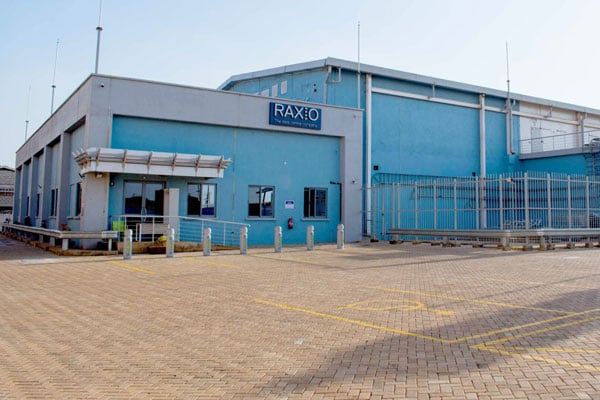Prime
Data centres becoming vital investment vehicles, says Knight Frank

The Raxio data centre in Namanve, Mukono District is an example of an investment that has attracted a lot of capital funding. Photo / File
What you need to know:
- The shift towards the digital economy had made some investors to liquidate interests in some sectors to invest in data centres
Investors are withdrawing investments in real estate to invest in data centres and green projects as a way of rebalancing their portfolios in response to the global macroeconomic volatility.
The move is also supported by a global shift towards technology.
In the last three years, there has been a significant exodus of investors from Uganda to secure their investments due to a variety of factors, including depreciating currency and high interest rates in Western economies.
Property consulting firm Knight Frank now reports that these investors - especially those in private equity - are increasingly growing interest in investing in industrial, residential, life sciences, and data centres. High net worth individuals are also showing strong interest in alternative sectors, especially in stable markets in Africa, but investment managers and institutional investors are expected to lead the demand.
The Africa 2022/23 report notes that political and environmental risks will have a huge impact on capital flows, mostly in projects that have dollar denominated returns.
Data centres have been gaining traction as alternative assets for developers and investors in Africa. Their demand has increased recently as a result of growth in the digital economy and the increasing adoption of Internet of Things, which has created the need for increased data processing speeds.
Hosting data keeps local businesses and startups competitive. However, inadequate power supply, a lack of fibre infrastructure, and expensive internet connectivity have hindered establishment of data centres.
Ms Irene Kaggwa, the Uganda Communications Commission (UCC) acting executive director, said at the weekend that whereas there has been a shift at the global level Ugandan investors are still reluctant to invest in data centres due to associated expenses and the need to adhere to data protection laws.
“Most organisations look at cost and efficiency when selecting which data services companies to work with. But we have a data protection law, which needs compliance. If companies decide to outsource their data centres they need to look for those in countries, which have a data protection law that is similar to that of ours or more,” she said.
Uganda passed the Data Protection and Privacy Act in 2019 and, in order to put the Act into effect, the country issued the Data Protection and Privacy Regulations in May 2021.
The Act creates a number of offenses to ensure compliance against unlawful access to personal data, destruction, deletion, concealment, or alteration of personal data and sale of personal data.
For these violations, companies that are involved in collection of data face a range of penalties, among which include, a fine of up to Shs4.9m, or 2 percent of the company’s gross income or imprisonment of concerned officers for a maximum of 10 years.




